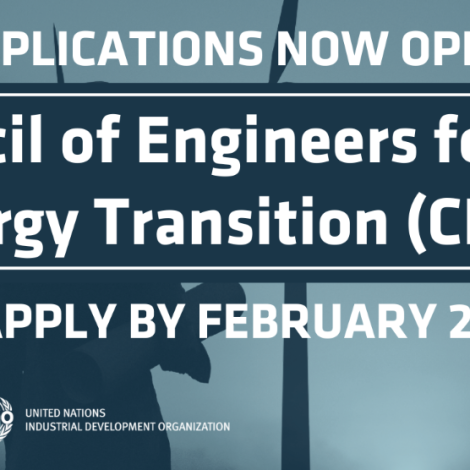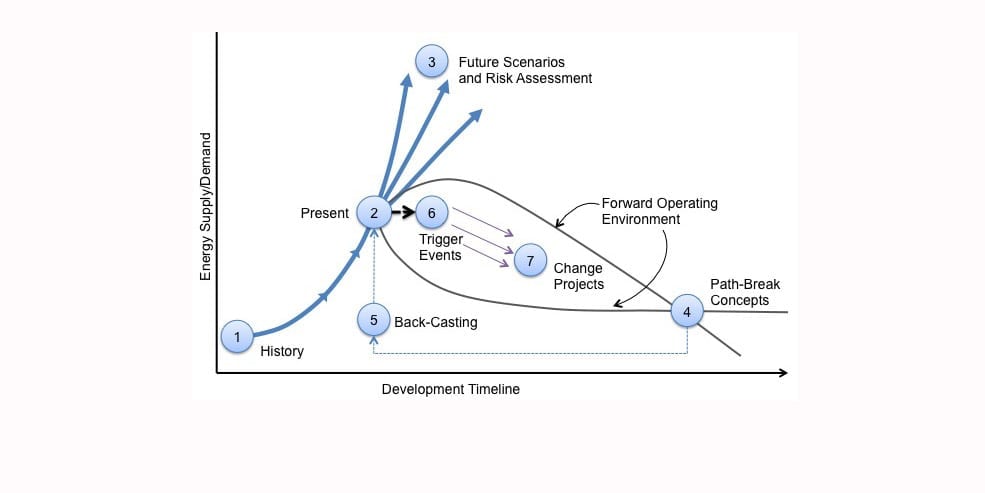Apply to the Council of Engineers for the Energy Transition
Application deadline: February 28th
The United Nations Secretary General has requested applications from experienced engineers to advise policies that can push the world toward net zero emissions by 2050. The recently launched Council of Engineers for the Energy Transition (CEET) is recruiting new members to join a high-level independent advisory council.
Gerd Müller, Director General of the United Nations Industrial Development Organization (UNIDO) and Professor Jeffrey Sachs, President of the Sustainable Development Solutions Network (SDSN), lead CEET as the spearhead of technological diplomacy for the energy transition.
Engineers joining as Council members will work alongside leadership within the UN system and directly provide input to nations working on the energy transition. CEET will provide advice on roadmaps to decarbonization by 2050, in line with the Paris Agreement and the findings of the Intergovernmental Panel on Climate Change (IPCC) special report on Global Warming of 1.5 ºC. The Council will report on pathways to net zero-carbon energy systems and engage the global engineering community on key priorities for the energy transition.
The Council has united members of organizations that served as technical advisors to policy makers previously, including SE4all, UN Energy and the UNESCO STI Forum, among others.
“It is perhaps the most direct attempt to bring engineers into global diplomatic activities and the UNFCCC [United Nations Framework Convention on Climate Change],” Elena Crete, Head of the Climate and Energy Program at the United Nations Sustainable Development Solutions Network, told E4C by email.
The CEET formally inserts engineering and technical know-how into climate change policy decisions, a perspective that may, at times, be overlooked.
“Unfortunately, in global discussion I think the technical solutions and problem-solving can get lost among geopolitical interests. If engineers can work together to get humankind to the moon, surely they can help us to achieve net-zero emissions,” Ms. Crete says.
After recruitment, the CEET will connect with UN agencies and other organizations to identify knowledge gaps and key themes of contention to address in 2023, addressing “technological lynchpin issues of decarbonization,” Ms. Crete says.
“We know the technologies available and we know that the transition to net-zero is technically feasible. We now need to agree globally on the future we want, and work together to implement and scale the incredible solutions we already have, and to determine how to develop a robust circular economy so that today’s solutions don’t create tomorrow’s problems. This will be a key part of what the CEET will be working towards in the years to come,” Ms. Crete says.
How to apply
Engineers are invited to apply to the CEET through an open formal application process that ends February 28th, 2022. The terms of service will be for two years in length, with possibility to extend, starting in May 2022. Confirmed members will be expected to participate in their personal capacities without remuneration, however any necessary travel or meeting expenses may be covered. Proficiency in the English language is required for participation in the CEET.
Membership will reflect cross-sectoral constituencies and geographical, and cultural diversity. Key sectors include energy supply, transport, buildings, industry, agriculture, land use and waste. Stakeholders represented will include industry, academia, think tanks, civil society, local and international NGOs and international organizations.
Apply today: icsd.submittable.com.

